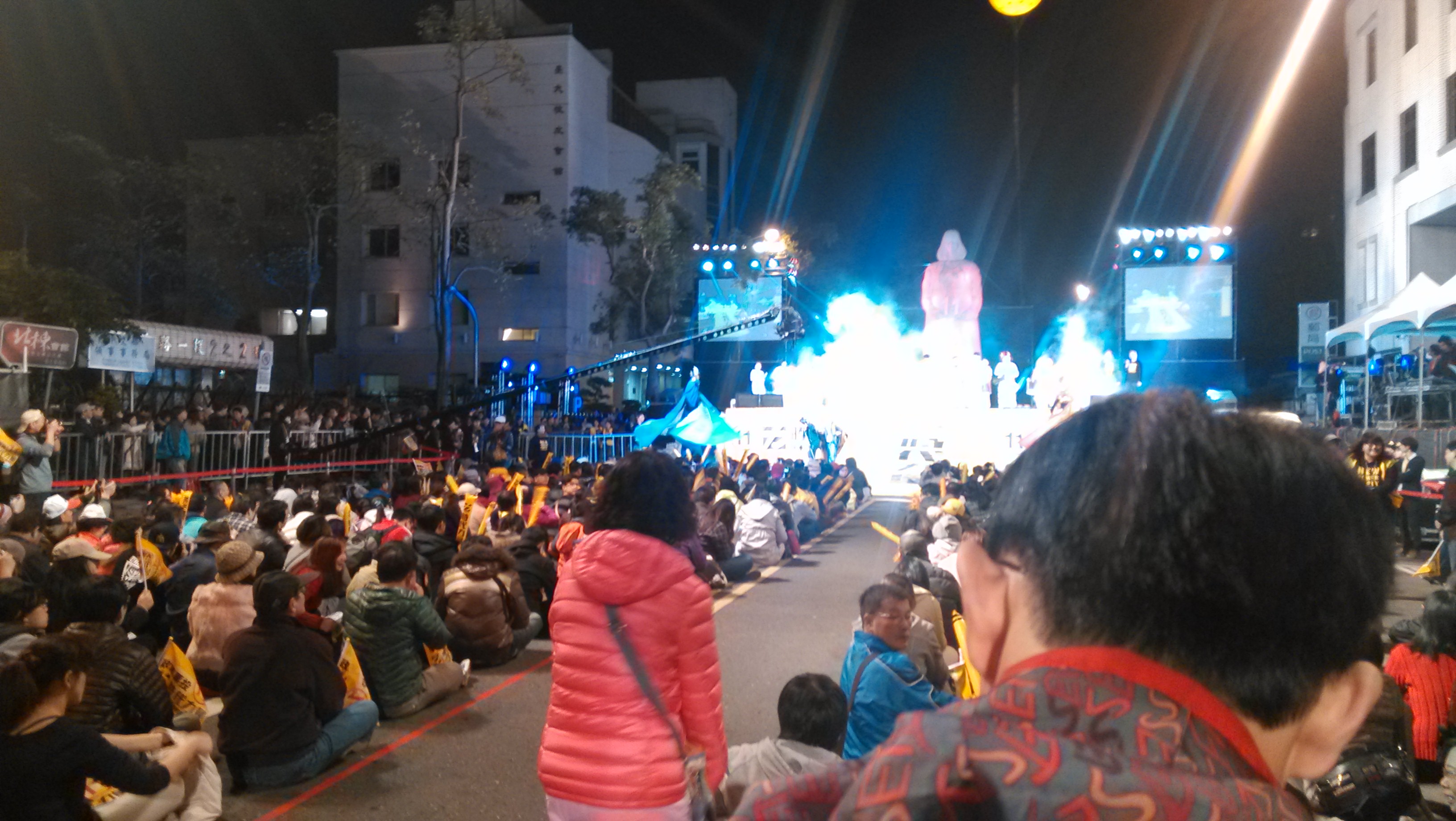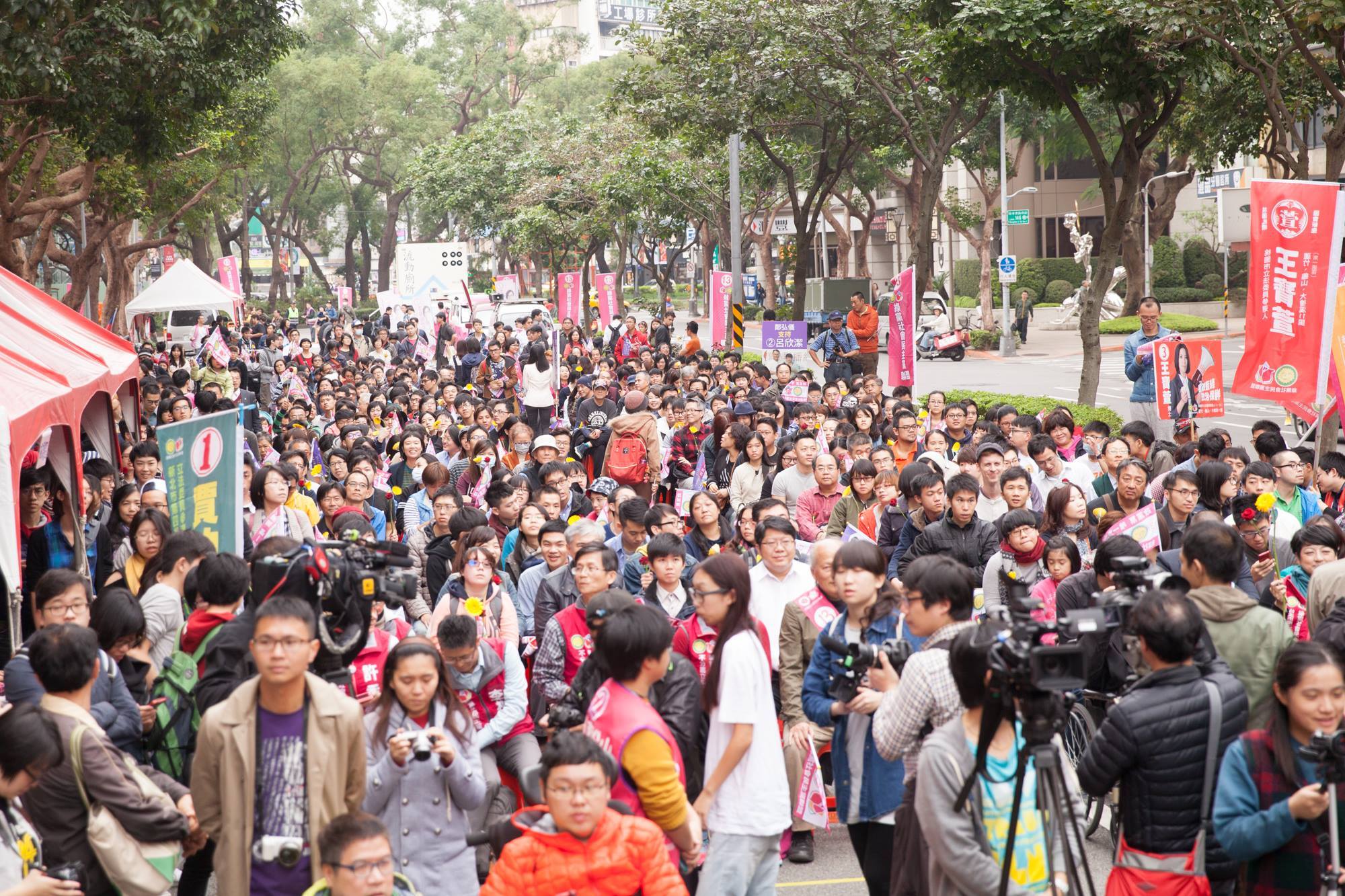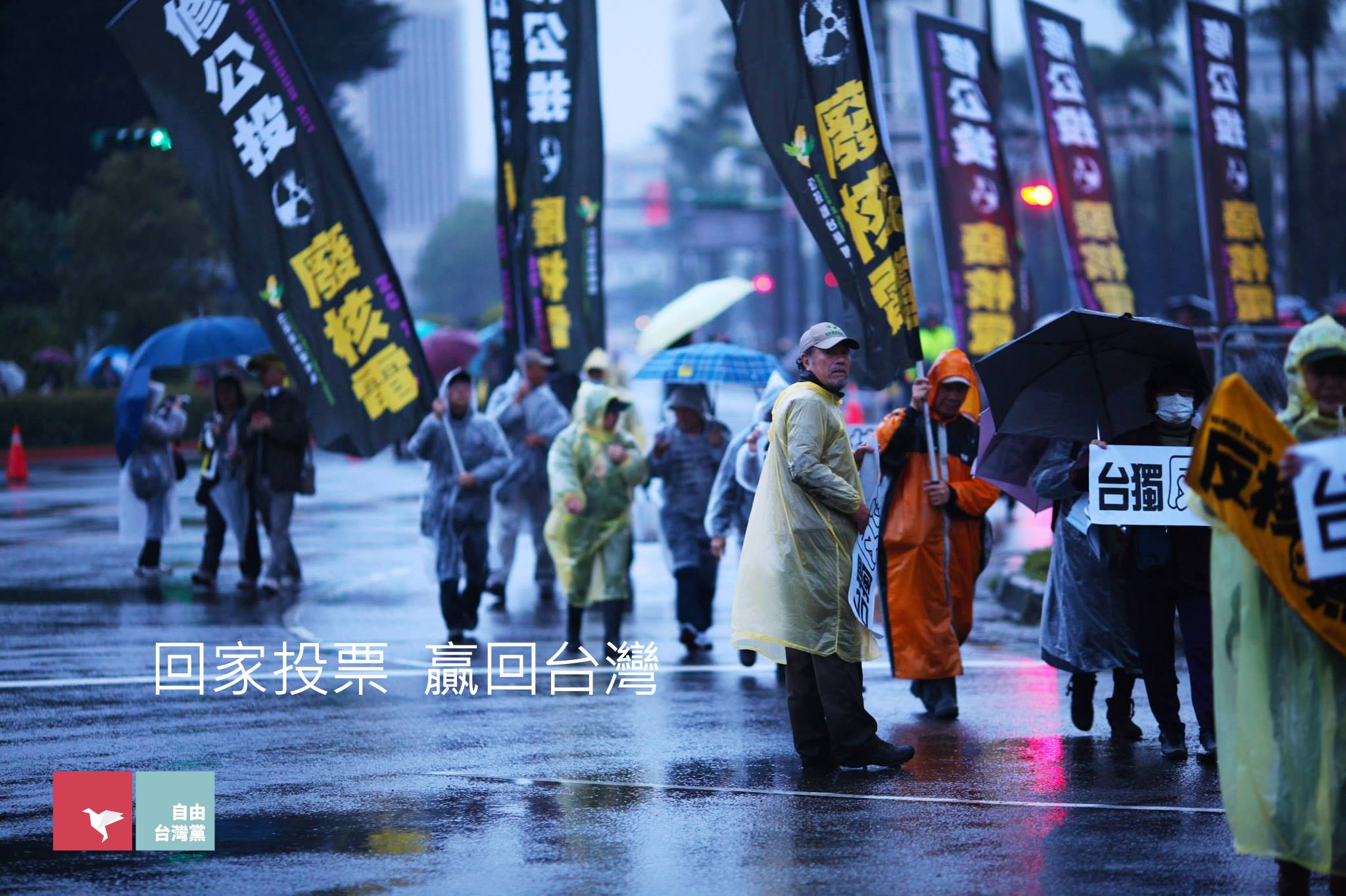by Brian Hioe
語言:
English
Photo Credit: Denis Chen
AS WE APPROACH elections, currently a debate is raging among Taiwanese activists. What is at stake is the question of whether Taiwan should first aim at “Independence” then leftist aspirations or first aim to be “Left” before aspiring towards independence. In part, this debate reflects that present elections are different from past elections, with the rise of numerous “Third Force” parties that originate in civil society and provide a variety of political choices for activists. This would certainly differ from past elections in which there would seem to be few choices besides KMT and DPP and smaller parties offering different shades of pan-Green and pan-Blue.
The issue is foregrounded by the three major Third Force parties which appeared in wake of the Sunflower Movement. The Social Democratic Party, now part of the Green-SDP Alliance, centered its politics by emphasizing its leftism, as attempting to move beyond tired independence/unification politics. This has led to critics, with some even attempting to smear the Green-SDP Alliance on the basis of their attempt to avoid independence/unification politics as making it a pro-unification party.
By contrast, though claiming to be a party of “Left” independence rather than “Right” independence, the Free Taiwan Party has as its central platform as Taiwanese independence. This, in turn, has led to critics who believe the FTP to be ultimately about Taiwanese independence much more than Leftism. Flanc Radical, as part of the Taiwanese Solidarity Union, also claims to be a left independence party but its rivalry with the FTP have led it to declare the FTP to be a “right independence” party in smear campaigns.
 New Power Party rally held on January 9th. Photo credit: Brian Hioe
New Power Party rally held on January 9th. Photo credit: Brian Hioe
Lastly, the New Power Party, a center-left party which does not advocate Taiwanese independence in as vocal a manner as the Free Taiwan Party but is nonetheless committed to defending Taiwan’s de facto independence, hews somewhere in the center. And some criticize it as too close to the DPP in its political positions in that light.
But if in past elections, the presidential or legislative vote was more important, it is a question as to which party to vote for this election in regards to the party vote. For legislative votes, it also is a question as whether to vote for a Third Force candidate or a DPP one in the traditionally blue districts where the Third Force is running but in which the Third Force was not successful in persuading the DPP to withdraw in favor of it. Yet it is because of the variety of political choices now available that there would be a debate between aiming at “independence” then “leftism” or vice-versa.
Actually, this is revealing of a longstanding tension within Taiwanese civil society about the meaning of “Taiwanese independence.” After all, what kind of social vision does one want for a Taiwan which is an independent, formally recognized country? On what basis would an independent Taiwan be constructed? A Left one? But if Taiwanese civil society generally swings Left or at least claims to, there would seem to be a lot of contestation about what is “Left” without a clear view of what “Leftism” means.
The view of “independence” before “leftism” has been used to suggest that one should not vote for a smaller, left-leaning party. It is argued that one should not vote for small parties with a low chance of beating the KMT and should instead vote DPP or TSU, to raise the chances of being able to beat the KMT. In particular, as the TSU is projected to see poor performance in upcoming elections, many argue that the TSU needs votes to ensure its survival as a DPP alternative.
But in this light, lurking behind the “independence” before “leftism” argument is sometimes just the aim of marshaling support for the DPP. It looks like Third Parties may do surprisingly well in upcoming elections and elements of the DPP are starting to doubt whether it was a good idea to throw support behind the Third Force if the Third Force may challenge the DPP in the future.
 Green-SDP Alliance rally held on January 10th. Photo credit: Social Democratic Party
Green-SDP Alliance rally held on January 10th. Photo credit: Social Democratic Party
On the other hand, it is also true that putting “leftism” before “independence” may be impractical. On what grounds is Taiwanese independence to be achieved? Must we wait for conditions which perfectly meet our ideological requirements in order to then achieve independence? But what would it do to realize, say, Taiwanese independence if an “independent” Taiwan is a corporate-dominated state? Would a Taiwanese people under corporate domination or the domination of capitalists be truly “independent” in the sense of being “free”?
It is thus that many are torn between which Third Force party to vote for with their party vote, one which advances leftism before independence, such as Social Democratic Party is often seen as, or one which advances independence before Leftism as the Free Taiwan Party is often seen as. Despite its claim to be a party inherently founded on the basis of leftist ideology, as setting itself apart from other parties, the SDP is hardly synonymous with a Taiwanese “Left”. We certainly see retrenchment from leftist ideology when SDP politicians such as Lee Yen-Rong are willing to meet with executives from corporations such as Acer or figures of the far-right as James Soong, or when Fan Yun endorses DPP politician Ker Chien-Ming—a popular example of DPP politician who has abused political power—above fellow Third Force candidate Chiu Hsien-Chih. Sometimes it is that when one claims to be left, what one actually does is actually rather right.
But similarly, the position of “Taiwanese independence” is not synonymous with the Free Taiwan Party, Flanc Radical, or competing parties and groups claiming the banner of Taiwanese independence. We do well to remember that no single party is equivalent with either Leftism or Taiwanese independence.
 Free Taiwan Party ad. Photo credit: Free Taiwan Party
Free Taiwan Party ad. Photo credit: Free Taiwan Party
Such a dilemma is not one easily resolved, but the debate is one which needs to be had among those who claim the banner of “Left Independence,” always a unstable combination of “left” and “independence” given the fundamental ambiguity of whether “independence” is an inherently “left” position or not. It is true that “left independence” is in some forms a revolutionary position, but there are just as many forms of “left independence” whose definition of “left” is reformist in nature.
Sometimes what is debated is whether the Republic of China framework needs to replaced with a new, localized framework or whether independence within the ROC framework is enough, the so-called debate between “Taiwanese independence” (台獨) and “ROC independence” (華獨). At other points, what is debated is what kind of “Left” is aspired to. A social democratic Left which wishes to reform capitalism, as claimed by the Social Democratic Party? Or a Left that calls the revolutionary overthrow of capitalism altogether?
The debate is one long coming and that it is able to be had in the present is actually a sign of progress. In the past, eking out a space to discuss just left and/or independence politics was hard enough, but now it is possible to discuss the meaning of “left independence.” That marks progress, but it also marks the long road which needs to be walked in Taiwan.


 New Power Party rally held on January 9th. Photo credit: Brian Hioe
New Power Party rally held on January 9th. Photo credit: Brian Hioe Green-SDP Alliance rally held on January 10th. Photo credit: Social Democratic Party
Green-SDP Alliance rally held on January 10th. Photo credit: Social Democratic Party Free Taiwan Party ad. Photo credit: Free Taiwan Party
Free Taiwan Party ad. Photo credit: Free Taiwan Party